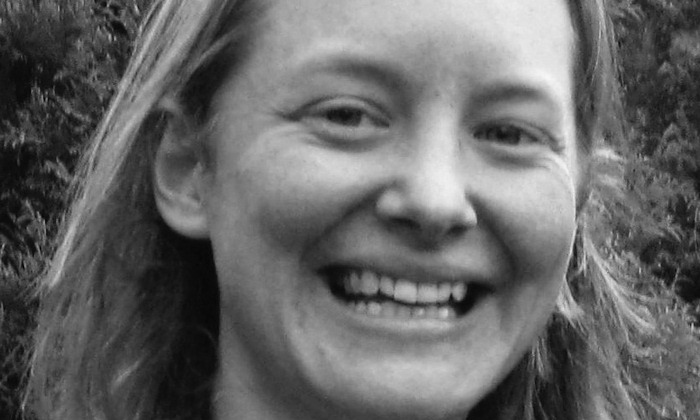A 'smart' way to spot schizophrenia signs
22 Aug 2016
How a new app keeps track of mental health warning signs

Emily Eisner knows how best to deal with her migraines – spot the signs early and avoid a major attack.
Emily, a Medical Research Council postgraduate student here at Manchester and winner of the MRC's Max Perutz Science Writing Award 2015, tells how she has applied that approach in her research into mental health:
"I am lying on my office floor. Swirling vision and shimmering lights have just begun. These are warnings. I know that if I take painkillers and rest I can avoid the intense pain of a migraine headache. The trick is to intervene early.
"My research is not about migraines, but the rationale is the same - you've got to spot the signs.
"Most people with a diagnosis of schizophrenia recognise warning signs that they are getting unwell – for example poor sleep or increased anxiety.
"Intervening early can prevent a full-blown psychotic episode. Rather than just sidestepping an afternoon of discomfort, like my migraine, prompt assistance could avoid months of distress and costly NHS treatment.
"Each new episode of psychotic illness brings its own fears, costs and risks. Aside from the distress of the psychotic symptoms themselves, the disruption to an individual's work and social life can be huge.
"When you've been off sick for three months, revealing to your boss that you spent the time tormented by voices from the TV that commented on your every move and commanded you to kill yourself is tricky.
"What if we could prevent new episodes before they started, using a device that's within reach right now: your mobile phone?"
Smartphone app
"In the next two years I’ll be trialling a smartphone app called ExPRESS. The aim is to help people track their own warning signs of relapse. It asks them a series of personalised questions every week and sends this information securely to their care team.
"If warning signs increase above a critical level, the patient and their team take action to prevent relapse.
"The mathematics of misery is economic as well as personal, so using an app like ExPRESS could potentially save the NHS millions.
"Three months of relapse is four times more costly than three months of remission. With the average hospital stay costing £12,198, most of the NHS's £4 billion schizophrenia outlay this year will be spent managing relapses.
"This is life-saving work – studies have suggested that people with a diagnosis of schizophrenia are 16 times more likely to die by suicide than the general population.
"Other researchers have used warning signs to predict relapse, but only one other research group has done this using a smartphone app. I have extended the range of warning signs that people can monitor by adding a group of experiences known as "basic symptoms" to the more commonly recognised warning signs such as anxiety and insomnia.
"If you've ever had déjà vu – that odd experience where something feels very familiar but you know that it can't be – you'll have some idea of what the basic symptoms are like.
"One woman I interviewed remembered that before her last psychotic episode the clock on the wall had looked a bit bent for a while.
"She was experiencing a basic symptom. Another noticed that colours seemed to be a bit brighter than usual.
"Both recognised that these odd experiences were just their mind playing tricks on them and, importantly, that they might mean they were getting unwell."
Predicting relapse
"Basic symptoms have already been used to accurately predict the first episode of psychosis. Until now, no-one has looked in detail at whether they predict relapse. I interviewed 23 people who had recently had a relapse and asked them about their experiences beforehand.
"Strikingly, three-quarters described basic symptoms. Some experienced as many basic symptoms as they did traditional warning signs such as insomnia.
"If we don't ask about basic symptoms, we are only getting half the picture. It's like monitoring the cholesterol of someone with heart disease but ignoring their blood pressure.
"The next step is to ask people about basic symptoms as they happen. Memories are imperfect - that's why some people keep a diary.
"Patients will be invited to use the ExPRESS app to keep track of their basic symptoms for six months, so it will be possible to see if those who report increased basic symptoms tend to have a psychotic episode soon afterwards. This is more scientifically robust than simply asking people about what happened last time they got unwell.
"It should help me to answer an important question – could monitoring basic symptoms help predict and prevent relapses of schizophrenia?
"Of my 421 Facebook friends, the statistics suggest at least four will have an episode of psychosis in their lifetime. They might be your friends or relatives too.
"Three of those four will have a relapse within five years, with most relapsing a second and third time. That's five years of disrupted work, interrupted friendships and unwanted hospital admissions.
"With early detection and prompt action they could rewrite that story. That is why my research matters – even if it sometimes gives me a migraine."
